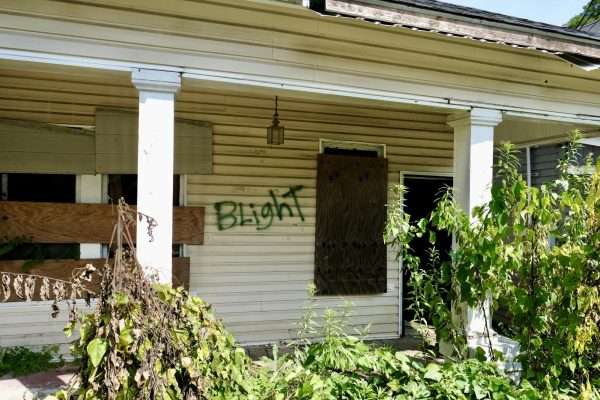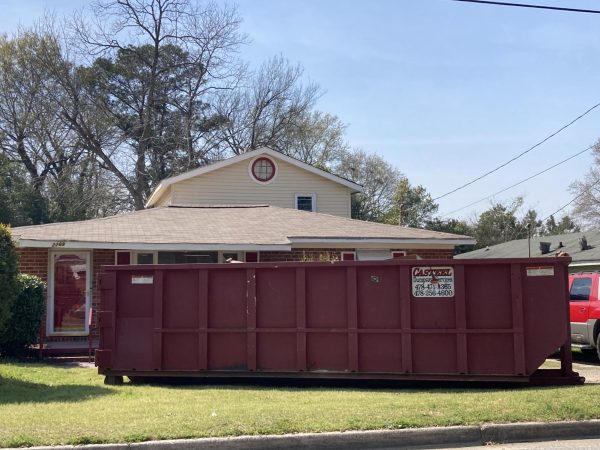Mercer Students Get Hands-on in the Dominican Republic
Mercer engineering student Lauren Folsom tosses rocks to Michael Nierodzik, who is also an engineering student. The students were helping construct a stone water tank in the Sabana Bonita community of El Cercado, Dominican Republic.
An assembly line of people pass rocks to one another as they add to the pile that will become the walls of a water tank in El Cercado, a municipality in the San Juan province of the Dominican Republic.
A team effort of engineering and journalism students and their professors work up a sweat and a cloud of dust as they shift through rocks.
“Your arm is so red,” Lauren Folsom, a civil engineering major and rising second year at Mercer University, says to Michael Nierodzik as she passes him a rock to place. “Yeah,” he huffs “it’s sunburnt, kind of like your face.”
Amongst mockery, bonding, and joking around, the engineering and journalism, have been exploring the depths of their majors to the fullest extent.
The Mercer On Mission trip to the Dominican Republic has always focused on water infrastructure and access to water for individuals and communities and both engineering and journalism students got hands on with the construction process.
“I really liked the aspect of getting to see my major in life helping people because I’ve always prayed over having a career that would impact people. It was hard at first to see how civil engineering, like building stuff, would actually affect people, but I think that this will be a great way to see how through civil engineering I can impact others,” said Folsom before the trip had left.
This year’s job site is in Sabana Bonita, where a larger water tank is being built to replace the one that has stood for 18 years.
“This is the exact type of focus I wanted to get into when I picked this major,” said Carlie Ezell in anticipation of the trip. Ezell is an environmental engineer going into her final year of undergrad.
This year’s trip also added research on how the region viewed people with physical disabilities and a group of journalism students to share in the work.

A week before leaving, Ezell and Folsom were in two different groups that participated in a lab on mobility and accessibility. Led by Dr. Laura Moody, an industrial engineering professor at Mercer, students were preparing for interviews about people with disabilities in El Cercado.
Moody had students walk a route across Mercer’s campus, some with a wheelchair and others without and test the accessibility of their own school.
Moody’s goal is to take the data from the Dominican surveys to see how receptive the community would be to building and acquiring resources for those with physical disabilities.
Before leaving the country, two weeks were spent on Mercer’s campus to prepare for both the construction projects and the accessibility interviews. All the students learned about water issues, construction materials and labor.
The group experienced some culture shock upon arrival.
“We got here and we had no water and I thought this is crazy, like this is just how these people live,” said engineering student Sara Engels. “I had been here before but I was staying at a resort so I had never really seen the other side of the Dominican Republic, so it’s kind of cool to see both areas.”

These students are following in the footsteps of engineers who have traveled to build water tanks for the communities in El Cercado for the last eight years.
Rising third year Ezra Nash has always wanted to be a part of these “from the start of when I enrolled in Mercer I wanted to do one of the Mercer On Mission trips just because I wanted an opportunity to get involved in the service learning type of thing. And of course this one aligns the most closely with my interests, because I’m an environmental engineering student and this involves water infrastructure.”

While standing under the blistering sun of the Caribbean, Nash shared how his real environmental passion is helping combat global warming and air quality.
“I really want to work in something that has to do with air pollution or sustainability or pollution control in general and of course that all falls under environmental engineering,” he said.
In one of the communities, Manyai, an older water tank needed repairs.
Gathered under the trees by a river bank, Fatoumata Keita shared her personal connection to the situation, “I know a lot of people who are in this situation and it’s not really ideal and it’s really hard and if I have the opportunity to do it (help) I’m going to every single time.”

As the progress on the water tank finally began to show, Engles smiled, “I think that they (engineers) can come up with really innovative ways to solve issues the best way possible. I think some of the best problem solvers in the world are engineers.”














